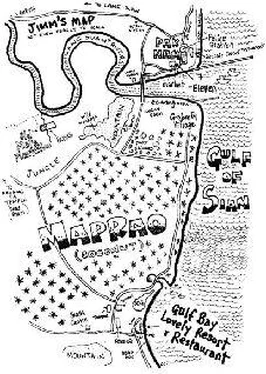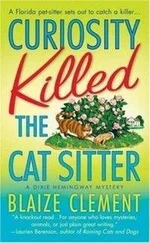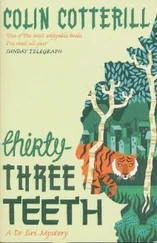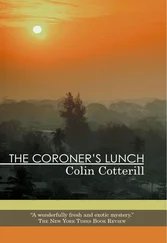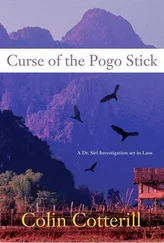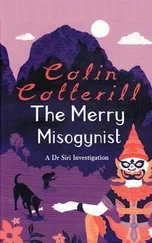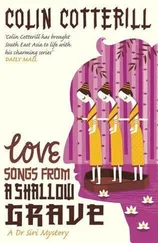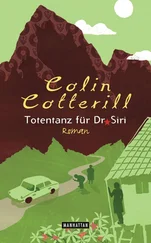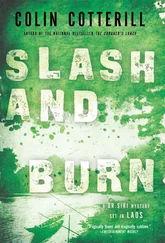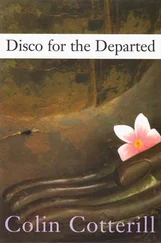Colin Cotterill - Killed at the Whim of a Hat
Здесь есть возможность читать онлайн «Colin Cotterill - Killed at the Whim of a Hat» весь текст электронной книги совершенно бесплатно (целиком полную версию без сокращений). В некоторых случаях можно слушать аудио, скачать через торрент в формате fb2 и присутствует краткое содержание. Жанр: Криминальный детектив, на английском языке. Описание произведения, (предисловие) а так же отзывы посетителей доступны на портале библиотеки ЛибКат.
- Название:Killed at the Whim of a Hat
- Автор:
- Жанр:
- Год:неизвестен
- ISBN:нет данных
- Рейтинг книги:4 / 5. Голосов: 1
-
Избранное:Добавить в избранное
- Отзывы:
-
Ваша оценка:
- 80
- 1
- 2
- 3
- 4
- 5
Killed at the Whim of a Hat: краткое содержание, описание и аннотация
Предлагаем к чтению аннотацию, описание, краткое содержание или предисловие (зависит от того, что написал сам автор книги «Killed at the Whim of a Hat»). Если вы не нашли необходимую информацию о книге — напишите в комментариях, мы постараемся отыскать её.
Killed at the Whim of a Hat — читать онлайн бесплатно полную книгу (весь текст) целиком
Ниже представлен текст книги, разбитый по страницам. Система сохранения места последней прочитанной страницы, позволяет с удобством читать онлайн бесплатно книгу «Killed at the Whim of a Hat», без необходимости каждый раз заново искать на чём Вы остановились. Поставьте закладку, и сможете в любой момент перейти на страницу, на которой закончили чтение.
Интервал:
Закладка:
“You took photos?”
“Of course.”
“Can I see them sometime?”
“No.”
“Don’t be nasty.”
“No, I mean you can’t see them because they’re all gone, swept up in the great CSD evidence plunder. They even emptied our computer files and took our discs.”
“This sounds deep.”
“Doesn’t it.”
“Did you see the photos?”
“I’m afraid I did. I could never forget them. Blood’s never been my strong point.”
“Could you describe the scene to me?”
“Do I have to?”
“It might help.” Chompu pulled the truck over to the side of the road.
“What are we stopping for?”
“I need to use my hands.”
“To describe a crime scene.”
“It makes it more dramatic.”
“OK.”
“Well, he…the deceased, was lying facedown on the concrete path, feet pointing…it must have been east. His head was almost in the flower bed, blood puddled under him half a meter to either side.”
“What was his expression?”
“Couldn’t see it. His whole face was masked by his hat.”
“And his robes?”
“Normal enough. No wounds, no blood at the back. The major said he’d been stabbed at least a dozen times in the stomach.”
Chompu stabbed into the air in front of him.
“That sounds extreme.”
“We discussed that in the station once we were excluded from the loop. The frenzied stabbing ruled out a lot of small-time crimes. Unlikely to be a mugging, not that he’d have a lot of money on him. Unlikely the perpetrator was caught red-handed doing something he shouldn’t. Even a hired hit seemed unlikely. This was more a…a grievance. It was a hate killing, either of Abbot Winai personally or of what he represented.”
“Someone with a grievance against Buddhism?”
“It’s happened before.”
“What’s to hate about Buddhism? It’s the most nonviolent, forgiving religion there is.”
“You never can tell. A novice abused by a monk when he was young. Someone who believed his grandma was cremated before she was dead. An old feud. Land deeds. And, don’t forget, the temple’s quick to welcome ex-thises and thats into its fold without background checks. There are a lot of gangsters in saffron.”
“Was there anything in the evidence they took that might have pointed to a motive?”
“Nothing at all.”
“And that was the last you heard from Lang Suan?”
“Yes…well, no.”
“No?”
“There was a call asking if we’d picked up a piece of equipment they’d misplaced at the crime scene.”
“What type?”
A camera.
I had to laugh at that.
“That’s rich. Someone stole the police camera? Nobody’s safe. It’s a good job you took your own crime scene photos.”
“I imagine they’re accusing us of stealing it. We are just country policemen, you know.”
I stared out of the window and a landscape of thoughts panned in front of my mind. Mai was singing ‘I don’t want you to know’.
“When did they call?”
“Who’s that?”
“The people who lost their camera.”
“Oh, it must have been…Sunday.”
Perfect timing.
“Are you sure it was Lang Suan?”
“Why?”
That seemed like a fitting time to tell him about the attack on the guard at Feuang Fa temple on Sunday night. Given all he’d said about the lack of feedback, I wasn’t surprised he hadn’t heard. I reached into my shoulder bag and handed him a black plastic pouch containing an empty cigarette lighter. I told him where I’d found it and what my granddad had said about the likelihood of it being dropped by the attacker.
“Are you suggesting it was the killer who phoned to see if we’d found a camera?”
“It’s a theory.”
“And once he found out we didn’t have it…”
“He went back to the temple to look for it. He tore half the hedge down.”
“And, if your granddad’s right, his lighter ran out of fluid before he could find it.”
“Either that or he found it just as the lighter was running out, or after a fumble in the dark, in which case we’ll never know. But at the very least you might have the killer’s fingerprint on that lighter.”
“But if we didn’t find the camera, and he didn’t find it, that could mean someone else did.”
“The plot thickens. What are you going to do?”
“As soon as I get a moment I’ll call this in to the major. The first thing we need to do is confirm whether it was Lang Suan who phoned. Then we’ll see.”
We drove through the rich green hills of Phato, passed Pak Song in a blur and reached the west coast with hunger in our bellies. Before heading into Ranong we stopped off at the main intersection with highway 4 and ordered yellow rice and chicken and green curry soup and, although the lieutenant was on duty, I indulged in a small Chang beer. To my surprise it arrived so cold it poured like sleet from the bottle. The first sip froze my brain and loosened my tongue.
“Exactly how did you get into the force in the first place?” I asked him.
“How do you mean?” He smiled.
“I’ve seen the recruitment process. I’ve read the protocols. If you’d been this camp at the interview there’s no way they’d have let you in.”
I thought I’d overstepped. It wouldn’t have been the first time. I got the feeling he was angry and I was about to apologize, but…
“I acted,” he said. “I’d debated making an issue of it, you know? Inviting the TV stations to come. Getting someone on camera to explain why people with my characteristics wouldn’t be suitable for the police force. Nobody had ever attempted it. Of course there are lots of gays in uniform but they’re all in their respective closets, not daring to poke their heads out. But when it came down to the wire, I chickened out. I was afraid they’d pretend I had some other fault which was the reason I’d been rejected and embarrass me with that instead. I was afraid I’d make my point and lose my opportunity. So I took the job over the principle.”
“And spent your career being transferred to nowhere places like Pak Nam.”
“What makes you think I didn’t request this?”
“You’re a waste of talent, Lieutenant.”
“You’re too sweet.”
The Chainawat building was a modest two-story slab of bricks not far from the bustling dockland of Ranong. There were a number of places with the same lack of style in the dusty side street. The southern Chinese went for simple practicality in their workplaces until they’d made as much money as they possibly could, then built gaudy, furniture-filled homes to retire to. Then they found they still spent most of their time in the workplace because, actually, you can never make too much money. In Thailand it was the Chinese who’d developed the south. Without them, the native southerners would still be lying in their hammocks sipping coconut water. Well, no. Come to think of it the natives still were. But the Chinese liked to work. It was tin that attracted them in the seventeenth century. Once they’d exhausted that they put in the southern train line to transport rubber to the capital. Despite what Old Mel would have us believe, it was the Chinese who introduced the oil palm, closely followed by drugs, gambling and prostitution. And with all that revenue, legal and otherwise, it was only fitting for the Siamese court to send out Chinese accountants to count the money. A lot of them became so rich counting it that they dug in as governors. Money and power became inextricably tied. You won’t find too many prime ministers over the past two hundred years without some decantation of Chinese blood in their veins.
But for those of southern stock, refugees from Malaysia and India, there’s always been that dilemma — that unanswered question: “Why would you want to work eighteen hours a day just to make money when you could lie back and watch the terns skim across the surface of the water, when you could marvel at the height of a coconut palm or put mind bets on the layers of cloud that raced at different speeds overhead?”
Читать дальшеИнтервал:
Закладка:
Похожие книги на «Killed at the Whim of a Hat»
Представляем Вашему вниманию похожие книги на «Killed at the Whim of a Hat» списком для выбора. Мы отобрали схожую по названию и смыслу литературу в надежде предоставить читателям больше вариантов отыскать новые, интересные, ещё непрочитанные произведения.
Обсуждение, отзывы о книге «Killed at the Whim of a Hat» и просто собственные мнения читателей. Оставьте ваши комментарии, напишите, что Вы думаете о произведении, его смысле или главных героях. Укажите что конкретно понравилось, а что нет, и почему Вы так считаете.
